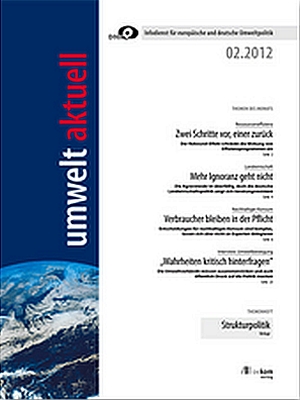The rebound effect is hotly debated. The rebound effect is an unintended side-effect of the introduction of technology and policy instruments aimed at environmental efficiency improvements, in particular where gains bring reduced costs. For example, the addition of insulation measures in a home, which help to make the home more thermally efficient and cheaper to heat, can result in householders leaving the heating on for longer or at a higher temperature. The project aims at evaluating the most current literature on the rebound effect and to develop remedies to counteract the rebound effect. The final report is available for download.
The project objectives:
- Determine and analyse the current state of the art knowledge and practice on rebound effect occurring in the EU and examples relevant to EU policies on resource efficiency, transport and SCP (direct, indirect and economy wide) as well as wider international experiences.
- Analyse ways to prevent, reduce or counteract the rebound effect and their effectiveness.
- Develop guidelines with clear recommendations for reducing/overcoming rebound in policy where needed in order to achieve the maximum environmental benefit through these policies and how to measure success.
The evidence and stakeholder views show that there is general agreement that the rebound effect exists and can be significant in many cases but varies in size depending on the sector, product, service, intervention (e.g. technology), location and timeframe. The magnitude of rebound effects are debated and based on a relatively small number of empirical studies with modelling and data limitations. However from these, evidence based examples of the rebound effect have been identified for different activities, e.g. energy efficiency in energy services (household and commercial), lighting, private cars, commercial road transport and buildings.
For most household energy services in OECD countries, direct rebound effects for energy efficiency for heating/ cooling , cars and other energy services are estimated in the range 10- 30% (Greening et al, 2000; Schipper and Grubb, 2000; UKERC, 2007; Sorrell, 2007; Small and van Dender, 2007). The economy wide rebound effects for energy efficiency improvements are estimated to be smaller than direct rebound effects at approximately 10% (Sorrell, 2007; Barker, 2005; Turner, 2010).
In this study, different measures for counteracting the rebound effect are proposed. As one measure: a policy toolbox should be developed. The toolbox should contain definitions, evidences and possible measures. Furthermore, support is necessary for data and models to enable better understanding of rebound effects and mitigating measures. In addition to the efficiency policy interventions already used for resources - physical, time, price and behavioural constraints are needed. This is the rationale for using mixed instruments combining fiscal, technology and behaviour change that incentivise efficiency while limiting rebound effects.
The final report [pdf, 2.6. MB, English] is available for download.



